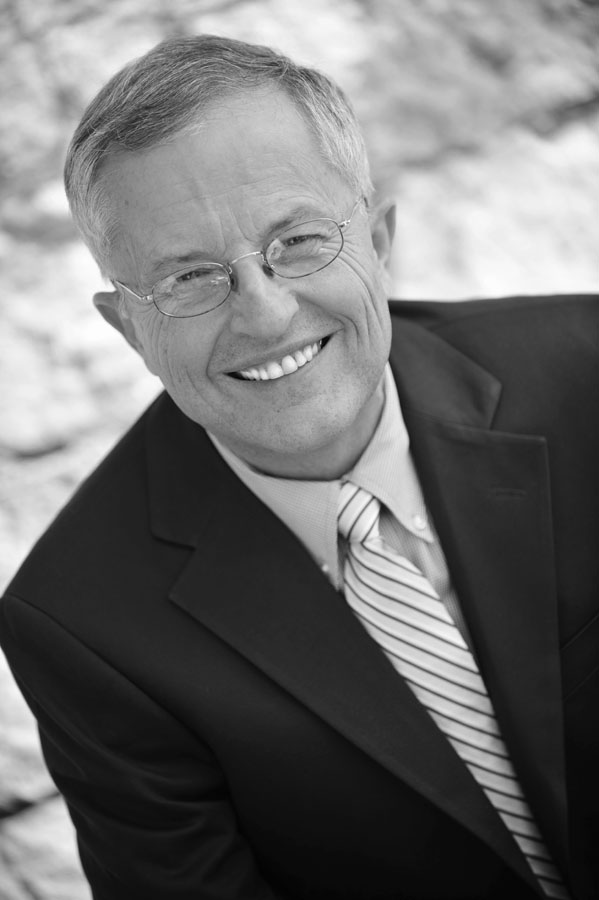(When Terry Mattingly interviewed me for his excellent column on my new book, Witness to the Truth, he said he was writing two columns about secrecy in the church. For column #1 he used my book to zero in on secrecy in the Southern Baptist Convention. For column #2 he used Russ Shaw's new book to hone in on secrecy in the Roman Catholic Church. He found the fact to be interesting that both books came out simultaneously and focused so clearly on the lack of truth telling among church leaders and institutions today.
I believe that its failure to walk in the light of truth and honesty severely hinders the church and denominations today. Obviously Russ Shaw and Terry Mattingly believe along parallel lines. Spin-doctoring and and media manipulation in their own midst are serious problems that church leaders refuse to address.
(Read below how Terry has condensed quite nicely Russ's book.)
If you want to cause trouble for American bishops, stick them in a vise
between Rome and the armies of dissenters employed on Catholic campuses.
But the bishops had to vote on Ex Corde Ecclesiae ("From the Heart of the
Church"). After all, they had been arguing about this papal document
throughout the 1990s, trying to square the doctrinal vision of Pope John
Paul II with their American reality. Rome said their first response was too
weak, when it came to insisting that Catholic schools remain openly
Catholic. Finally, the bishops approved a tougher document on a 223-to-31
vote.
Soon after that 1999 showdown, someone "with a good reason for wanting to
know" emailed a simple question to Russell Shaw of the United States
Catholic Conference. Who voted against the statement?
"There was no way to know. In fact, the Vatican doesn't know -- for sure --
who those 31 bishops where," said Shaw, discussing one of the many
mysteries in his book, "Nothing to Hide: Secrecy, Communication and
Communion in the Catholic Church.
"The secret ballots were destroyed," he noted. "These days the voting
process is even more secret, since the bishops just push a button and
they've voted. Even if you wanted to know how your bishop voted, or you
wanted the Vatican to know how your bishop voted, there's no way to do
that."
Professionals have learned to read between the lines of debates held in the
open sessions that the U.S. bishops choose to schedule. Outside those
doors, insiders talk and spread rumors. Some bishops spin the press and
others, usually those sending messages to Rome, hold press conferences,
publish editorials or preach sermons. But many of the crucial facts remain
cloaked in secrecy.
Of course, noted Shaw, few leaders of powerful institutions enjoy
discussing their crucial decisions -- let alone corporate or personal sins
-- in public. When Catholic insiders complain about "clericalism" they are
confronting a problem that affects all hierarchies, from government to
academia, from the Pentagon to Wall Street.
"It's a kind of elitism, a way of thinking and behaving that assigns to the
managerial class a superior status," he said. "They are chiefs and everyone
else is an Indian. They set the agenda. They always make the final
decisions. They get to tell everyone else what to do."
Of course, there's truth in the old image that puts the pope at the top of
an ecclesiastical pyramid, with ranks of clergy cascading down to the pews.
Catholicism is not a democracy and there are times when leaders must keep
secrets. That's "a truth," said Shaw, but it is "not the only truth," since
the whole church is meant to be knit together in a Communion built on a
"radical equality of dignity and rights."
Part of what is happening, he explained, is that some bishops are
protecting a "facade of unity" that hides their doctrinal disagreements
with the Vatican. While Shaw believes the bishops are more united with Rome
now than they where were about 25 years ago, some bishops may be pushing
for more and more closed "executive" sessions as a subconscious way to
protect themselves.
Take, for example, the brutal waves of scandal caused by the sexual abuse
of children and teens by clergy. For several decades, argued Shaw, the
bishops have been afraid to openly discuss "the causes of the dreadful mess
-- nasty things like homosexuality among priests, theological rationalizing
on the subject of sex and the entrenched self-protectiveness of the old
clericalist culture."
That's the kind of scandal that creates global headlines. But, for most
Catholics, more commonplace forms of secrecy shape their lives at the local
level, said Shaw.
Consider another story reported in Shaw's book, about a woman who quietly
confronted a priest after a Mass in which he omitted the creed. When he
failed to acknowledge the error, she said, "Father, you teach your people
to be disobedient when you disobey the Church."
The offended priest was silent. Then he leaned forward and whispered, "You
know what honey? You're full of it." The priest walked away, giving the
woman and her husband what appeared to be "the single-digit salute."
Truth is, said Shaw, "clericalism is often alive and well at the local
level. That's the kind of secrecy and dishonesty that really cuts the heart
of many local parishes, destroying any hope for real Communion there."
Terry Mattingly (www.tmatt.net) directs the Washington Journalism Center at
the Council for Christian Colleges & Universities.






No comments:
Post a Comment